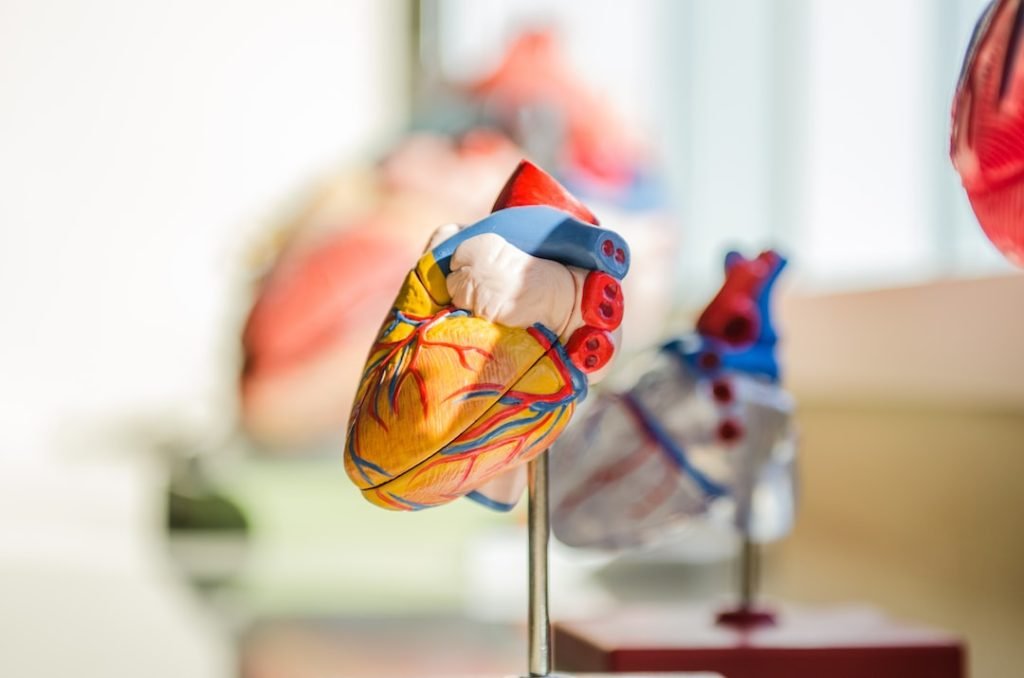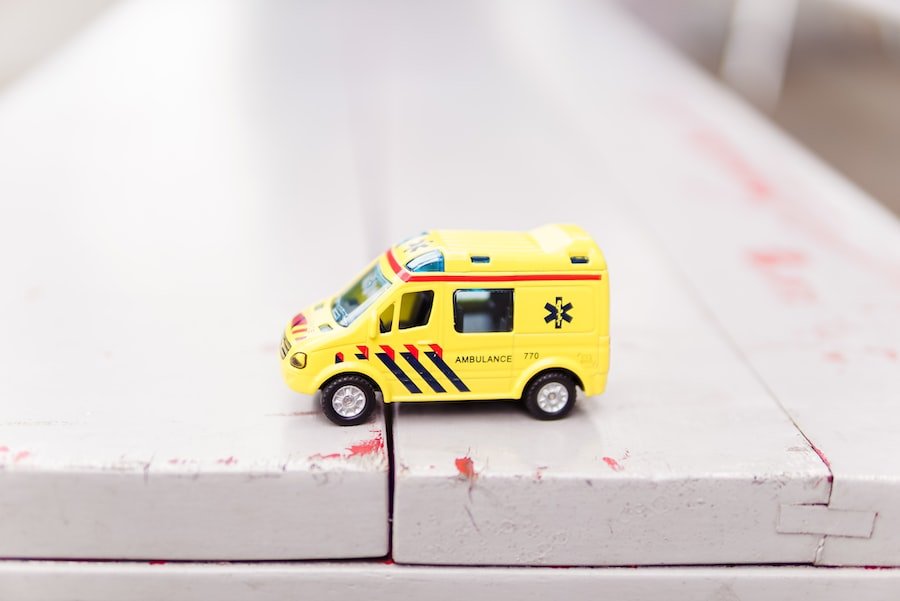

Healthcare in France: Medical Vocabulary
Learning medical vocabulary in French is of utmost importance for healthcare professionals who work in French-speaking countries or with French-speaking patients. Being able to communicate effectively with patients, colleagues, and other healthcare professionals is crucial for providing quality care and ensuring patient safety. Medical vocabulary in French can be divided into different categories, including basic medical terms, anatomy and physiology vocabulary, common medical conditions and symptoms, medical procedures and treatments, medical equipment and devices, medications and prescriptions, mental health vocabulary, and emergency situations and vocabulary.
Table of Contents
ToggleBasic Medical Terms in French for Healthcare Professionals
In order to effectively communicate with patients and colleagues in a medical setting, healthcare professionals need to be familiar with basic medical terms in French. Some common medical terms and phrases used in French-speaking countries include “le médecin” (the doctor), “l’infirmière” (the nurse), “le patient” (the patient), “la douleur” (the pain), “la fièvre” (the fever), “les médicaments” (the medications), “les symptômes” (the symptoms), “les allergies” (the allergies), “la pression artérielle” (the blood pressure), and “les antécédents médicaux” (the medical history).
For example, a healthcare professional might say, “Bonjour, je suis le médecin. Comment puis-je vous aider aujourd’hui?” (Hello, I am the doctor. How can I help you today?) or “Avez-vous des allergies aux médicaments?” (Do you have any allergies to medications?). These basic medical terms are essential for establishing rapport with patients and gathering important information about their health.
Anatomy and Physiology Vocabulary in French
Understanding anatomy and physiology vocabulary is crucial for healthcare professionals when discussing the human body and its functions. Some vocabulary related to the human body includes “le cerveau” (the brain), “le cœur” (the heart), “les poumons” (the lungs), “les reins” (the kidneys), “le foie” (the liver), “les os” (the bones), “les muscles” (the muscles), “le système nerveux” (the nervous system), and “le système digestif” (the digestive system).
For example, a healthcare professional might say, “Les poumons sont responsables de la respiration” (The lungs are responsible for breathing) or “Le cœur pompe le sang à travers le corps” (The heart pumps blood throughout the body). Understanding and using anatomy and physiology vocabulary in French is essential for accurately describing the human body and its functions.
Common Medical Conditions and Symptoms in French
Being able to discuss common medical conditions and symptoms in French is important for healthcare professionals when diagnosing and treating patients. Some vocabulary related to common medical conditions and symptoms includes “la grippe” (the flu), “le rhume” (the cold), “la douleur abdominale” (abdominal pain), “la toux” (cough), “la fièvre” (fever), “les maux de tête” (headaches), “les nausées” (nausea), “les vomissements” (vomiting), and “la fatigue” (fatigue).
For example, a healthcare professional might say, “Vous avez les symptômes de la grippe, il est important de se reposer et de boire beaucoup de liquides” (You have symptoms of the flu, it is important to rest and drink plenty of fluids) or “La douleur abdominale peut être causée par plusieurs facteurs, nous devons faire des tests pour en savoir plus” (Abdominal pain can be caused by several factors, we need to do tests to find out more). Being able to accurately describe and discuss common medical conditions and symptoms in French is essential for providing appropriate care to patients.
Medical Procedures and Treatments in French
Healthcare professionals need to be familiar with vocabulary related to medical procedures and treatments in order to effectively communicate with patients and colleagues. Some vocabulary related to medical procedures and treatments includes “l’examen médical” (the medical examination), “la prise de sang” (the blood test), “la radiographie” (the X-ray), “la chirurgie” (the surgery), “les soins infirmiers” (the nursing care), “la rééducation” (the rehabilitation), “les médicaments” (the medications), and “la thérapie” (the therapy).
For example, a healthcare professional might say, “Nous devons faire un examen médical pour évaluer votre état de santé” (We need to do a medical examination to assess your health condition) or “La rééducation est importante pour récupérer après une chirurgie” (Rehabilitation is important for recovery after surgery). Understanding and using vocabulary related to medical procedures and treatments in French is essential for providing appropriate care and explaining treatment options to patients.
Medical Equipment and Devices in French

Being familiar with vocabulary related to medical equipment and devices is important for healthcare professionals when discussing and using these tools in a medical setting. Some vocabulary related to medical equipment and devices includes “le stéthoscope” (the stethoscope), “le tensiomètre” (the blood pressure monitor), “le thermomètre” (the thermometer), “le défibrillateur” (the defibrillator), “le respirateur” (the ventilator), “le cathéter” (the catheter), “le scalpel” (the scalpel), and “le microscope” (the microscope).
For example, a healthcare professional might say, “Je vais utiliser le stéthoscope pour écouter votre cœur et vos poumons” (I am going to use the stethoscope to listen to your heart and lungs) or “Nous devons utiliser le cathéter pour administrer le médicament” (We need to use the catheter to administer the medication). Understanding and using vocabulary related to medical equipment and devices in French is essential for effectively using these tools in a medical setting.
Medications and Prescriptions in French
Being able to discuss medications and prescriptions in French is important for healthcare professionals when prescribing and administering medications. Some vocabulary related to medications and prescriptions includes “le médicament” (the medication), “la posologie” (the dosage), “les effets secondaires” (the side effects), “l’ordonnance” (the prescription), “la pharmacie” (the pharmacy), “les comprimés” (the tablets), “les gouttes” (the drops), and “la crème” (the cream).
For example, a healthcare professional might say, “Je vais vous prescrire un médicament pour soulager vos symptômes” (I am going to prescribe a medication to relieve your symptoms) or “Il est important de suivre la posologie indiquée sur l’ordonnance” (It is important to follow the dosage indicated on the prescription). Understanding and using vocabulary related to medications and prescriptions in French is essential for providing appropriate care and ensuring patient safety.
Mental Health Vocabulary in French
Understanding mental health vocabulary is important for healthcare professionals when discussing mental health conditions and providing support to patients. Some vocabulary related to mental health includes “la dépression” (depression), “l’anxiété” (anxiety), “le stress” (stress), “la psychothérapie” (psychotherapy), “les troubles du sommeil” (sleep disorders), “les troubles alimentaires” (eating disorders), “les troubles de l’humeur” (mood disorders), and “les troubles de la personnalité” (personality disorders).
For example, a healthcare professional might say, “La dépression peut être traitée avec une combinaison de médicaments et de psychothérapie” (Depression can be treated with a combination of medication and psychotherapy) or “Le stress peut avoir un impact sur la santé mentale, il est important de trouver des stratégies pour le gérer” (Stress can have an impact on mental health, it is important to find strategies to manage it). Understanding and using mental health vocabulary in French is essential for providing appropriate support and treatment to patients.
Emergency Situations and Vocabulary in French
Being familiar with vocabulary related to emergency situations and medical emergencies is crucial for healthcare professionals when responding to urgent situations. Some vocabulary related to emergency situations includes “l’accident” (the accident), “la blessure” (the injury), “la douleur thoracique” (the chest pain), “l’arrêt cardiaque” (the cardiac arrest), “la réanimation” (the resuscitation), “le défibrillateur automatique externe” (the automated external defibrillator), and “l’appel d’urgence” (the emergency call).
For example, a healthcare professional might say, “Appelez une ambulance, nous avons un patient avec une blessure grave” (Call an ambulance, we have a patient with a serious injury) or “Nous devons commencer la réanimation immédiatement” (We need to start resuscitation immediately). Understanding and using vocabulary related to emergency situations and medical emergencies in French is essential for providing timely and appropriate care in urgent situations.
French Language Courses for Healthcare Professionals
There are various French language courses available for healthcare professionals who want to improve their language skills. These courses are specifically designed to meet the needs of healthcare professionals and focus on medical vocabulary, communication skills, and cultural competence. Taking a French language course can provide healthcare professionals with the necessary tools to effectively communicate with patients, colleagues, and other healthcare professionals in a medical setting.
Benefits of taking a language course for healthcare professionals include improved patient care and safety, enhanced communication skills, increased job opportunities, and cultural competence. By learning medical vocabulary in French, healthcare professionals can provide better care to French-speaking patients and work more effectively with colleagues from different cultural backgrounds.
There are several resources available for finding French language courses for healthcare professionals. Online platforms such as Coursera, Babbel, and Rosetta Stone offer language courses specifically tailored to the needs of healthcare professionals. Additionally, many universities and language schools offer French language courses for healthcare professionals. It is important to research and choose a course that best fits individual needs and goals.
In conclusion, learning medical vocabulary in French is essential for healthcare professionals who work in French-speaking countries or with French-speaking patients. Being able to effectively communicate with patients, colleagues, and other healthcare professionals is crucial for providing quality care and ensuring patient safety. Medical vocabulary in French can be divided into different categories, including basic medical terms, anatomy and physiology vocabulary, common medical conditions and symptoms, medical procedures and treatments, medical equipment and devices, medications and prescriptions, mental health vocabulary, and emergency situations and vocabulary.
By familiarizing themselves with these different categories of medical vocabulary in French, healthcare professionals can provide better care to patients, accurately describe medical conditions and symptoms, discuss treatment options, use medical equipment and devices effectively, prescribe medications appropriately, provide support for mental health conditions, and respond to emergency situations. Taking a French language course specifically designed for healthcare professionals can further enhance language skills and cultural competence, leading to improved patient care and job opportunities. It is important for healthcare professionals to continue learning and practicing their French language skills in a medical setting to ensure effective communication and quality care.
If you’re interested in expanding your medical vocabulary in a foreign language, you might find this article on Norwegian Legal Lexicon: Essential Norwegian for Understanding Norwegian Law helpful. It provides key terms and phrases related to the legal field in Norwegian, which can be useful for healthcare professionals working in Norway.
FAQs
What is the healthcare system in France?
France has a universal healthcare system that provides coverage to all residents, regardless of their income or employment status. The system is funded through taxes and contributions from both employers and employees.
What is the role of a general practitioner in France?
General practitioners, or “médecins généralistes,” are the first point of contact for patients seeking medical care in France. They provide primary care services, such as diagnosing and treating common illnesses, and can refer patients to specialists if necessary.
What is the difference between a public hospital and a private hospital in France?
Public hospitals in France are funded by the government and provide healthcare services to all patients, regardless of their ability to pay. Private hospitals, on the other hand, are funded by private insurance and typically cater to patients with higher incomes.
What is the French word for a specialist doctor?
In France, a specialist doctor is called a “médecin spécialiste.” These doctors have completed additional training in a specific area of medicine and are often referred to by their specialty, such as “cardiologue” for a cardiologist or “dermatologue” for a dermatologist.
What is the French word for a prescription?
In France, a prescription is called an “ordonnance.” Patients must obtain an ordonnance from a doctor in order to purchase prescription medications at a pharmacy.
If you want to learn Norwegian, you can register for classes here. We look forward to hearing from you and helping you become fluent in Norwegian.





